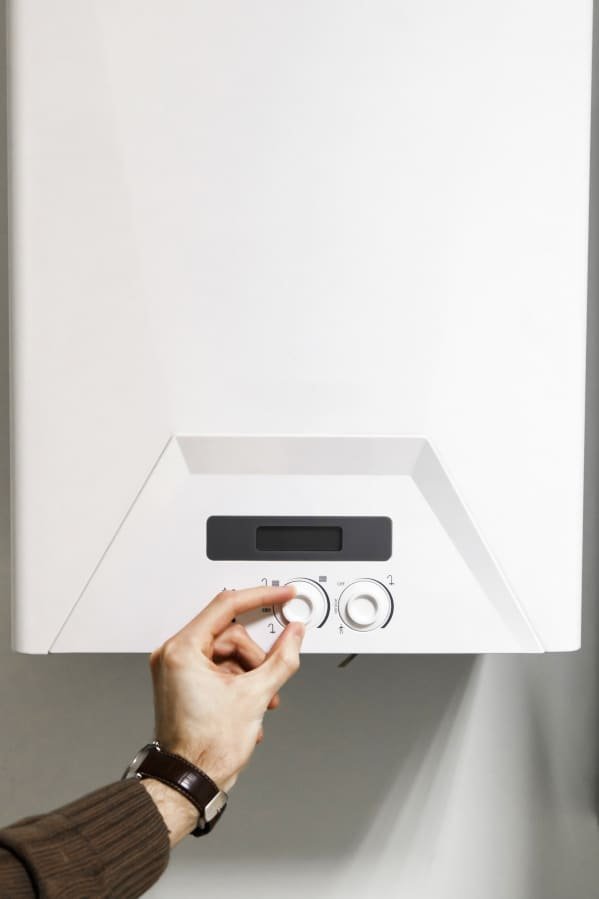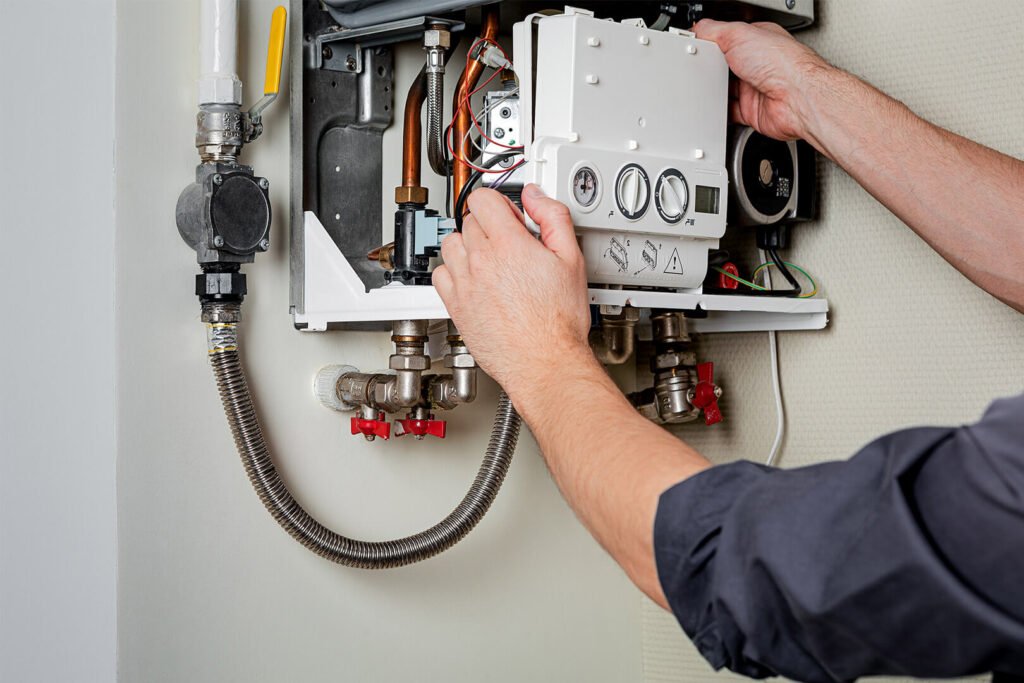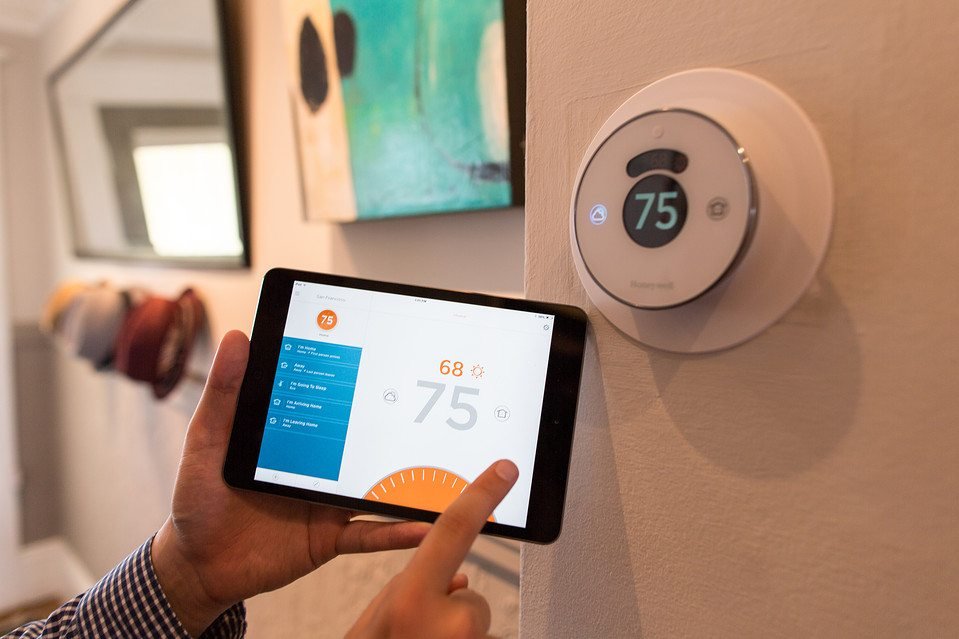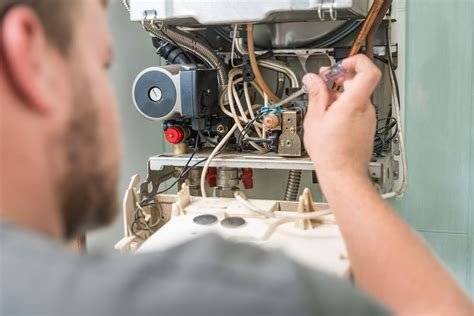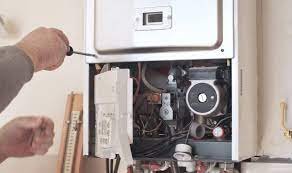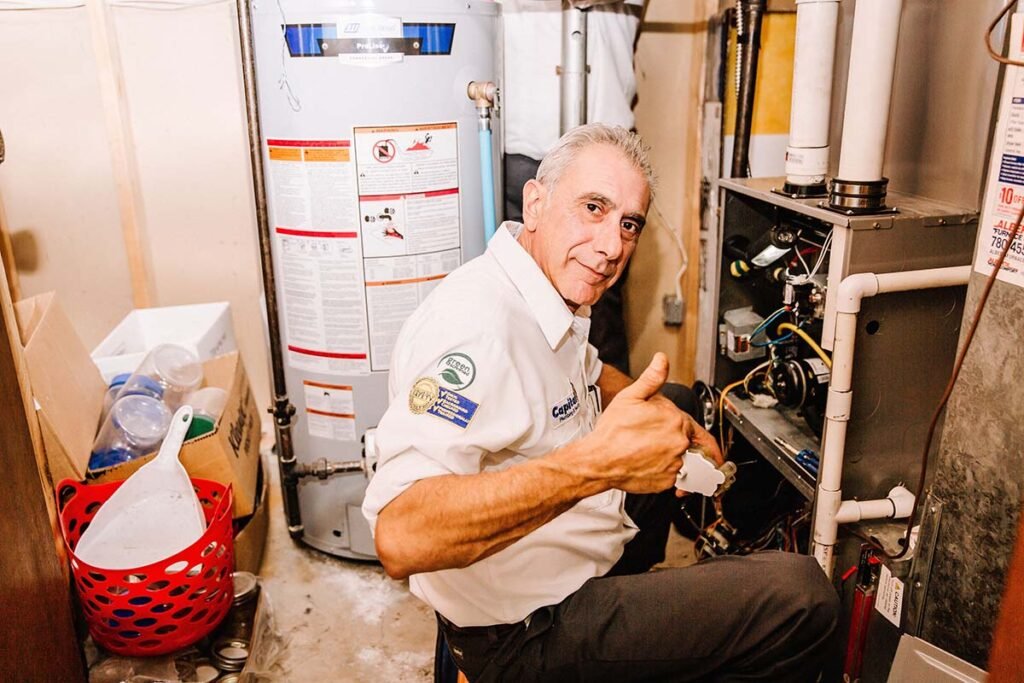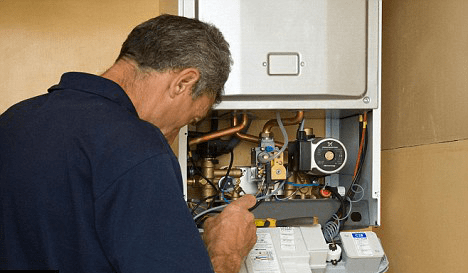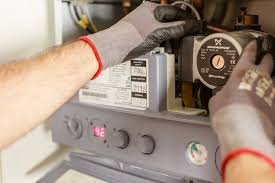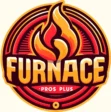Furnace Installation Sherwood Park - Your Dependable Heating Specialists
Furnace Pros Plus is your trusted partner for all your heating requires. With years of experience, we specialize in delivering first-class heating solutions to keep your home warm and comfy. Our team of proficient specialists devote themselves to providing specialist furnace setup, upkeep, and repair services. We understand the importance of an appropriately working heating system, particularly during the colder months. We prioritize performance, cost, and customer fulfillment in every project (huge or little). Whether you require a new furnace, a regular check-up, or emergency repair work, depend on Furnace Pros Plus for trustworthy and efficient heating services that make sure comfort and comfort.
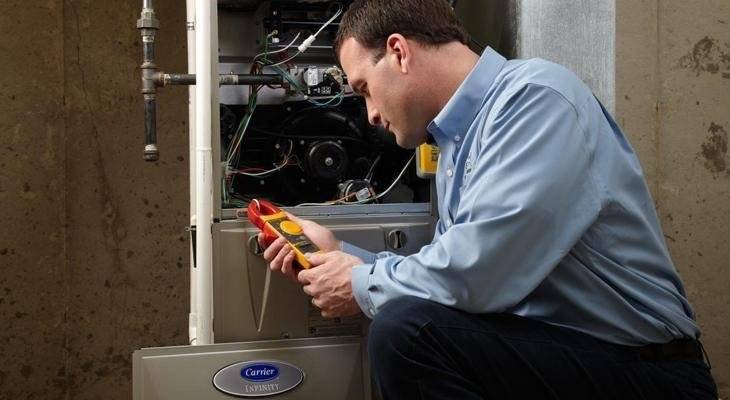
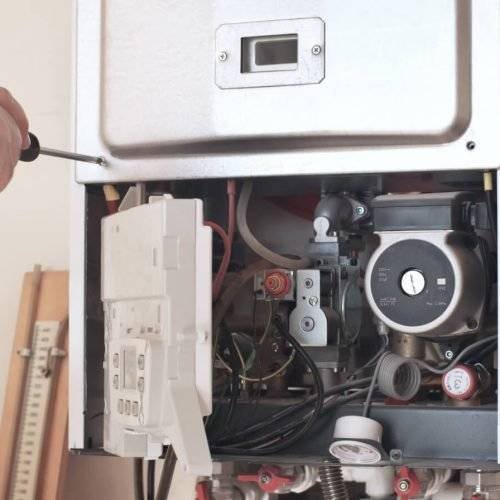
Who Are We?
Residential Heating Installations and Repairs
Furnace Pros Plus stands apart as the leading furnace installation and repair business in Sherwood Park, Alberta, thanks to its unmatched devotion to quality, client service, and proficiency. With years of experience in the heating and cooling market, Furnace Pros Plus has built a reputation for delivering trusted and efficient services customized to the unique environment and requirements of Sherwood Park locals.
The business’s dedication to quality begins with its team of qualified specialists. Each furnace professional is not just highly skilled and well-informed about the most recent furnace innovations but also dedicated to ongoing training and development. This ensures that every setup or repair is carried out with the utmost precision and updated techniques, ensuring exceptional performance and longevity of your heater.
Furnace Pros Plus understands the importance of a well-functioning furnace, particularly during the extreme Sherwood Park winter seasons. That’s why they use a quick response to make sure that any furnace emergency is dealt with promptly and effectively, decreasing discomfort and possible dangers. Their 24/7 availability is a testimony to their devotion to customer fulfillment and security.
Moreover, Furnace Pros Plus utilizes just the highest quality products and materials in all their setups and repair work. By partnering with leading makers, they make sure that every component of your furnace system is durable and efficient, providing optimal heating and reducing energy expenses. This dedication to quality, extends the life of the furnace, providing more worth for the financial investment.
In addition to their technical proficiency, Furnace Pros Plus excels in client service. They prioritize clear communication, providing detailed consultations and transparent pricing without surprise charges. Their personalized technique implies that every solution is customized to the particular requirements and spending plan of their clients, ensuring that you feel valued and pleased with every interaction.
For these factors and more, Furnace Pros Plus is the leading option for homeowners requiring furnace setup and repair services in Sherwood Park, demonstrating an unsurpassable blend of quality, proficiency, and customer-focused service.
How can we help you?
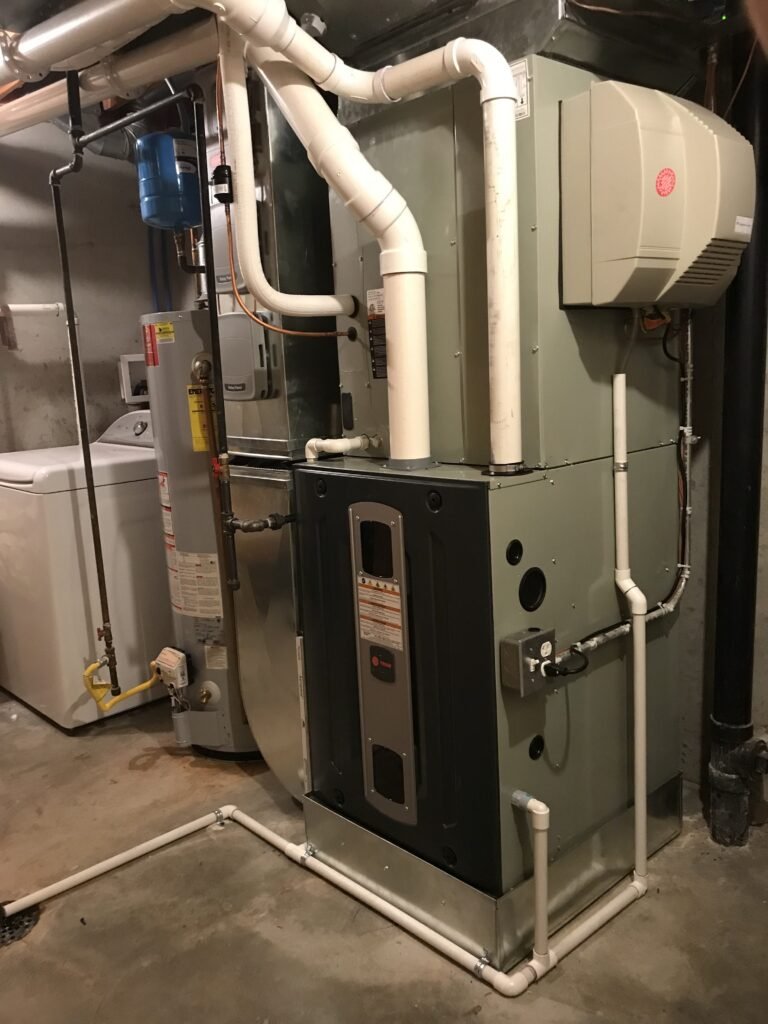
Comprehending the Expense of Installing a Modern Furnace
Introduction
A functioning furnace is vital when it comes to maintaining a comfortable and warm home during the colder months. Nevertheless, there comes a time when setting up a new furnace is inevitable.
Comprehending the expenses involved in this process is vital for homeowners to strategy and spending plan appropriately. This thorough guide checks out the numerous aspects affecting the cost of setting up a new furnace.
Factors Influencing Heater Installation Expenses
Kind of Heating system:
- Gas Furnaces: Popular for their performance, they generally cost more upfront but use lower operating costs.
- Electric Furnaces: They are more economical than gas heating systems. Nevertheless, electric models tend to have greater functional expenses due to electricity prices.
- Oil Heating systems: These are less common and can be more pricey due to the cost of oil.
Heater Size and Capacity
- Square Footage: The size of your home directly impacts the capacity needed for the furnace.
- BTU Score: Greater BTU scores equate to more powerful heating systems, which can increase the cost.
Effectiveness Ratings
Annual Fuel Utilization Effectiveness (AFUE):
Greater AFUE scores suggest better performance but also come with a greater price.
Brand and Quality
Top-tier brands typically command greater prices due to their track record for quality and longevity.
Installation Complexity
- Existing System: Updating from an old system might need additional work and cost.
- Ductwork: The condition and layout of existing ductwork can affect setup complexity.
- Accessibility: Tough access to the setup website can increase labour expenses.
Labour Expenses
Labour expenses differ by region. In addition, the complexity of the setup can affect labour expenses.
Additional Expenses to Think About
- Permits: Some regions need permits for furnace setup.
- Inspections: City laws might need post-installation assessments for security compliance.
- Thermostats: Updating to a smart thermostat can sustain additional expenses.
Average Expense of Heater Installation
While prices can differ extensively based on the aspects pointed out above, here are some average cost varieties for furnace setup:
- Gas Heating systems: $2,000 to $5,000.
- Electric Furnaces: $1,000 to $2,500.
- Oil Heating systems: $2,500 to $6,000.
These are rough price quotes and can differ based on particular home requirements.
Cost-Saving Tips.
Research and Compare.
Acquire numerous quotes from various contractors to make sure competitive pricing.
Look For Rebates and Incentives.
Search for energy performance refunds provided by energy companies or federal government programs.
Think About Long-Term Savings.
Purchasing a more efficient furnace can decrease energy costs over time.
Conclusion
Setting up a new furnace is a substantial financial investment, and comprehending the expenses involved is vital for any homeowner. By considering the type of furnace, setup complexity, labour expenses, and additional costs, homeowners can better get ready for this needed upgrade. Remember to seek numerous quotes, check out offered refunds, and think about long-term energy cost savings when choosing.
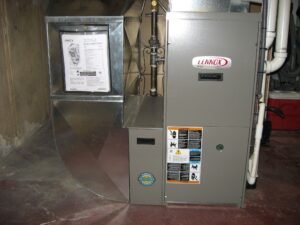
The Right Size Heater for Your Home: A Comprehensive Guide
Introduction
Picking the right size furnace for your home is vital for ensuring efficient heating and comfort during the colder months. A heating system that’s too little will not keep your home warm, while one that’s too large can cause unnecessary energy intake and irregular heating. This guide will assist you determine the perfect furnace size for your home.
Comprehending Heater Sizing: BTU and Effectiveness
We determine the size of a furnace in British Thermal Units (BTU). One BTU is the energy needed to raise the temperature of one pound of water by one degree Fahrenheit. When selecting a furnace, two essential aspects play a role: the BTU rating, indicating the furnace’s heating capacity, and its performance rating, determined in Annual Fuel Utilization Effectiveness (AFUE).
Determining Your Home’s Heating Requirements
You need to calculate your home’s heating requires to determine the proper furnace size. The calculation thinks about aspects like square video footage, environment zone, insulation quality, window type, and home layout. Usually, you require roughly 30-60 BTUs per square foot. Nevertheless, this varies based on your home’s particular qualities.
Climate Zone and Its Influence On Heater Size
Your geographic place significantly affects the furnace size required. Houses in colder regions, such as [place], need more BTUs per square foot than those in milder climates. Seek advice from a heating expert for particular suggestions.
The Function of Home Insulation in Heater Sizing
Good insulation decreases the amount of heat loss, indicating you can opt for a smaller sized furnace. Examine your home’s insulation in the walls, attic, and windows. Updating insulation can be an affordable way to minimize heating requirements.
Considerations for Different Kinds Of Furnaces
There are numerous kinds of heating systems, like gas, electric, and oil. Each type has unique sizing considerations. Gas heating systems prevail and efficient, electric heating systems are more straightforward and more secure but typically more pricey to run, and contractors set up oil heating systems where gas isn’t offered.
Significance of Expert A/c Evaluation
An expert a/c evaluation is invaluable. Service technicians think about all variables, including ductwork and home layout, to recommend the optimal furnace size. They can carry out a Manual J calculation, the market requirement for figuring out heating and cooling loads.
Energy Effectiveness and Cost-Effectiveness
Picking a furnace with a high AFUE rating is vital for energy performance and cost savings. Modern heating systems have AFUE scores between 80% and 98%, indicating the portion of fuel converted into heating. While high-efficiency heating systems are more pricey upfront, they can cause substantial cost savings in the long run.
Resolving Typical Misconceptions About Heater Sizing
A typical misunderstanding is that a larger furnace is constantly better. Nevertheless, a large furnace can cause short cycling, where the furnace often turns on and off, reducing performance and lifespan. Conversely, a small furnace has a hard time to warm your home sufficiently.
Long-Term Benefits of the Right-Sized Heating system
Selecting the right-sized furnace has long-term benefits, including constant comfort, lower energy costs, lowered carbon footprint, and fewer upkeep issues. It’s a balance between upfront expenses and long-term cost savings.
Summary: Making an Informed Decision
Picking the right size furnace is a choice that impacts your home’s comfort and energy performance for several years to come. By comprehending the basics of furnace sizing and seeking expert assistance, you can make an educated decision that ensures optimal heating for your home.
Remember, the key to an effective and comfy home depend on selecting the right furnace and regular upkeep and considering other aspects like insulation and environment. With this thorough guide, you are fully equipped to choose the ideal furnace for your home, providing heat and comfort for numerous winter seasons.

Replace or Repair Heater: A Far-reaching Guide
Introduction
Choosing whether to change or fix your furnace is a substantial decision for any homeowner. The option impacts your instant comfort and security and has long-term monetary implications. This thorough guide will check out numerous elements to think about, assisting you make a notified decision.
Comprehending Your Heating system
Lifespan and Types
Heating systems generally have a lifespan of 15-20 years. The two primary types are gas and electric, each with various upkeep and functional expenses.
Indications of Trouble
Typical indications that your furnace might require attention include uncommon sounds, irregular heating, and increased energy costs.
When to Think About Repairing Your Heater
Repair work is typically the best option for small issues or heating systems that are reasonably brand-new and still under service warranty.
Cost-Effectiveness
Repairing can be more economical for small issues. Nevertheless, frequent repair work might suggest a deeper issue.
Environmental Impact
Repair work typically have a lower ecological effect than replacing the whole system.
When Replacement is the Very Best Alternative
You should think about replacement if your furnace is near the end of its lifespan, repair work are becoming significantly pricey, or if it could be more energy efficient.
Long-term Expense Savings
While the initial cost is greater, a new furnace can be more energy-efficient, conserving you money on energy costs.
Technological Developments
More recent models include advanced technology, such as clever thermostats, which use better temperature control and performance.
Weighing Your Choices
Expense Analysis
Compare the cost of repair work over time versus the one-time expenditure of a new furnace.
Energy Effectiveness
Examine how your present furnace’s performance is impacting your energy costs.
Home Worth
Think about how a new furnace might increase the worth of your home, particularly if you prepare to sell in the future.
Expert Recommendations
Looking For Professional Opinion
Seek advice from heating and cooling specialists to assess the state of your present furnace and get price quotes for repair and replacement.
Significance of Regular Maintenance
Regular upkeep can extend the life of your furnace, whether you decide to fix or change it.
Summary
In conclusion, choosing to fix or change your furnace depends on numerous aspects, including age, condition, cost, and energy performance. By considering these aspects and seeking expert advice, you can decide that ensures comfort, security, and monetary prudence for your home.
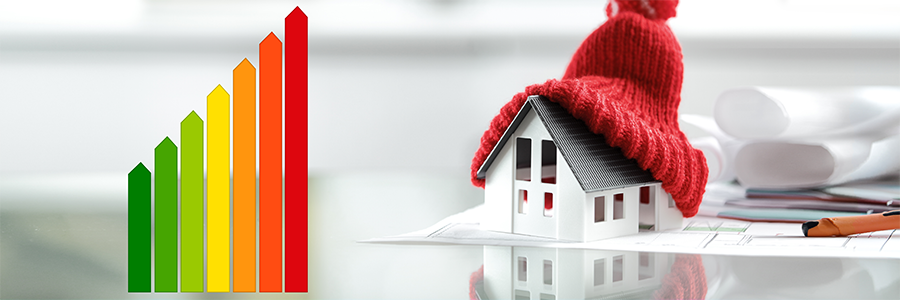
What Season is the Least Expensive to Change Your Heater?
Will a New Energy-Efficient Heater Reduce Your House Insurance Coverage?
Introduction
Home upkeep can be a substantial financial investment, particularly when it involves vital systems like heating. One of the most significant expenses homeowners deal with is replacing their furnace. Nevertheless, timing this replacement can cause substantial cost savings. This short article checks out the best time of year to change your furnace, considering cost-effectiveness and functionality.
Comprehending Heater Replacements
The Requirement for Replacement
Before diving into timing, it’s important to understand why and when you should change your furnace. Typical indicators include frequent repair work, heating ineffectiveness, and the system’s age (generally beyond 15-20 years). Replacing an out-of-date or malfunctioning furnace improves heating performance and ensures security and comfort during colder months.
Factors Influencing Heater Prices
Numerous aspects affect furnace prices, including the type of furnace, brand name, capacity, and the complexity of setup. Seasonal need is another substantial element, typically overlooked, yet it plays a vital function in figuring out the cost.
Best Time for Replacement: Off-Season
Why Select Off-Season?
The off-season, mostly spring and early fall, is normally the most affordable to change a furnace. The need for heating unit is lower during these periods than during the peak winter season. Lower need typically causes more competitive pricing from makers and installers.
Benefits of Off-Season Replacement
- Lower Expenses: Lowered need can cause discount rates and more customer negotiating power.
- Availability of Technicians: a/c specialists are less hectic during these times, ensuring more versatile scheduling and quicker setup.
- Sufficient Time for Research: The off-season provides homeowners enough time to research study various furnace models and options without the pressure of instant requirement.
Preparation Ahead
Utilizing the off-season requires planning. Expect the requirement for replacement and schedule it when the need is low. This foresight conserves money and prevents the trouble of a furnace breaking down in the middle of winter season.
Winter: The Peak Season
Challenges of Winter Season Replacement
- Greater Prices: The need for furnace setup and repair peaks during winter season, causing greater prices.
- Hectic Schedules: Finding a specialist might be more challenging, and you might need to wait longer for a consultation.
- Emergency Replacements: If your furnace breaks down in winter season, you might need to opt for an immediate replacement, which leaves little room for cost contrast or negotiation.
Other Factors to consider
Energy Effectiveness and Rebates
Purchasing energy-efficient models might be more pricey upfront but can cause long-term cost savings. Also, look out for refunds and tax credits provided for energy-efficient home improvements.
Significance of Regular Maintenance
Regular upkeep can lengthen the life of your furnace, postponing the requirement for replacement. It’s a vital element of home care that you should take note of.
Summary
Timing your furnace replacement can cause substantial cost savings. The off-season, particularly spring and early fall, is generally the most economical period for this financial investment. Preparation, considering energy performance, and maintaining your present furnace can enhance costs and make sure a warm, comfy home.
Introduction
Property owners typically consider whether upgrading their home appliances and systems can cause cost savings on their home insurance coverage premiums. One common question is whether setting up a new furnace lowers home insurance coverage expenses. This short article explores how a new furnace setup might impact your home insurance coverage, providing insights into insurance coverage, risk management, and possible cost savings.
Comprehending House Insurance Coverage Premiums
Before diving into the specifics of heating systems and insurance coverage, it’s vital to understand what aspects affect home insurance coverage premiums. Insurer assess numerous aspects, including:
- Home Age and Condition: Insurance coverage Agents view newer homes with updated systems as lower dangers.
- Location: Geographical place and regional environment can significantly affect insurance coverage rates.
- Security Features: The presence of alarms, smoke alarm, and other security gadgets can decrease premiums.
The Impact of a New Heater on House Insurance Coverage
Setting up a new furnace in your house can have numerous implications for your home insurance coverage:
- Lowered Threat of Fire and Gas Leakages: Modern heating systems with advanced security functions minimize dangers like fire or gas leaks. This risk reduction can be beneficial in the eyes of insurance coverage suppliers.
- Improved Energy Effectiveness: Newer heating systems are typically more energy-efficient, causing lower energy expenses and a decreased ecological footprint, indirectly affecting insurance coverage considerations.
- Boosted Home Worth: Updating to a new furnace can increase your home’s market price, which might affect the protection you require.
Potential Insurance Coverage Discount Rates
Some insurance provider use discount rates for home improvements that minimize risk. These might include:
- Protective Device Discounts: You might get approved for a discount if your brand-new furnace contains advanced security functions.
- Green House Discounts: Some insurers offer unique discount rates for setting up energy-efficient home appliances.
Documentation and Appraisal
To leverage a new furnace setup for insurance coverage benefits, think about the following:
- Expert Installation: Ensure a certified expert installs your furnace, which can be a prerequisite for insurance coverage benefits.
- Keep Records: Maintain all receipts and documents for the furnace purchase and setup.
- Notify Your Insurance Provider: Notify your insurer about the upgrade. They might need an examination or additional documents.
Factors to consider Before Updating
While a new furnace can use benefits, think about the following:
- Expense vs. Advantage Analysis: Assess if the long-term cost savings on insurance coverage and energy costs justify the initial cost of a new furnace.
- Insurance Policy Review: Speak to your insurance coverage agent to understand how a new furnace might specifically impact your policy.
Summary
Updating to a new furnace can decrease your home insurance coverage premiums by reducing risk and enhancing your home’s security and performance. Nevertheless, the effect varies based on specific insurance coverage and the particular functions of the furnace. It’s a good idea to consult with your insurance coverage supplier to understand the full benefits and implications of a new furnace setup.
Frequently asked questions
Q: Just how much can I minimize my home insurance coverage by setting up a new furnace?
A: Savings differ based on the insurance coverage supplier and the particular functions of the brand-new furnace. Seek advice from your insurance coverage agent for detailed info.
Q: Are there any particular kinds of heating systems that are more beneficial for insurance coverage discount rates?
A: Heating systems with advanced security functions, high energy performance scores, and those that satisfy particular ecological requirements are typically more beneficial.
How to Get ready for a Heating System Installation
Setting up a new furnace in your house is a substantial financial investment and a vital upgrade to your living space. It improves the comfort of your home and improves energy performance. Proper setup preparation is vital to make sure the setup process is smooth and stress-free. This short article will guide you through the needed steps to get ready for a furnace setup.
Comprehending Your Heating Requirements
Examining Your Area: The initial step is to assess the size of your area and understand the heating requirements. A too-large or too-small furnace for your home can cause ineffectiveness and greater energy expenses. Consulting with a heating expert to determine the right furnace size is vital.
Picking the Right Heater: There are numerous heating systems, including gas, electric, and oil. Each has pros and cons; the option depends on your place, spending plan, and individual preference. Research and consult with specialists to make a notified decision.
Pre-Installation Preparation
Selecting a Certified Installer: We can not overemphasize the importance of choosing a qualified and experienced installer. Search for specialists with great evaluations and correct certification. They will make sure a proper setup and guide you through the process.
Clearing the Location: Ensure the area where you prepare to set up the furnace is clear of any mess. A tidy area provides simple access to the setup team and speeds up the process. Remove any valuable or vulnerable products from the vicinity to prevent accidental damage.
Getting ready for Downtime: Depending on the complexity of the setup, your heating system might be down for a couple of hours to a day. Strategy appropriately, particularly if the setup is during colder months.
Throughout Installation
Access to Your Home: Ensure the installers have simple access to your home, which includes ensuring that parking is offered and a clear path to the furnace place.
Communication: Stay offered to answer any concerns the installers might have. Clear communication can assist fix any issues quickly and guarantee your setup goes as prepared.
Post-Installation Checks
Examine the Setup: Once the setup is total, examine the deal with the installer. Ensure that the setup is total and that the area is clean.
Comprehending the System: Have the installer explain the functioning of the brand-new furnace, including how to alter filters and the fundamental troubleshooting steps.
Service warranty and Documentation: Ensure you receive all needed documents, including service warranty info and operating handbooks. Keep these documents in a safe place for future recommendation.
Conclusion
Getting ready for a furnace setup involves comprehending your heating requires, selecting the right furnace, and choosing a qualified installer. By following these steps, you can make sure a hassle-free setup process and take pleasure in the comfort and performance of your brand-new heating system for several years to come. Remember, a little preparation goes a long way in ensuring a smooth and successful furnace setup.
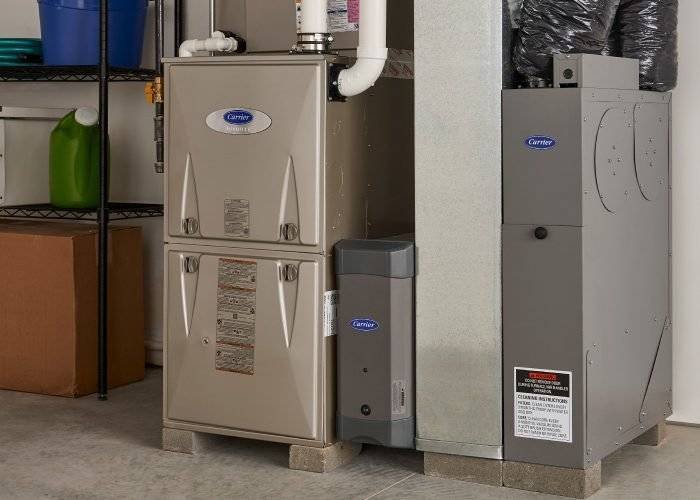
Our Work


